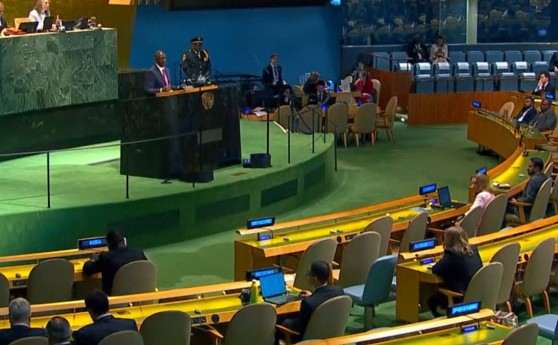At the UN, Africa Demands Justice, Equity, and Recognition of Its Rights

The central demand of African leaders at the UN is a fundamental reform of global governance. They denounce persistent marginalization and call for a fair and equitable place in the international order, symbolized by permanent representation on the UN Security Council. Beyond institutional reform, their appeal centers on economic justice, acknowledgment of the continent’s role in addressing climate change, and the need for equitable partnerships. Some even question the symbolic legitimacy of the UN headquarters remaining in a country often criticized for human rights violations and controversial foreign policy.
The 80th session of the United Nations General Assembly opened in New York, bringing together a record number of heads of state and government to advocate their visions of multilateralism and the future of global governance.
Throughout the week, African voices were strongly raised to denounce ongoing marginalization and demand fair representation in international institutions. The continent’s heads of state repeatedly called for justice, inclusive development, and respect for the fundamental rights of African peoples.
Congolese President Denis Sassou Nguesso reaffirmed that Africa, rich in natural resources and demographic dynamism, is above all a “continent of the future.” He urged the UN to reform a Security Council that he described as obsolete, in order to make it “more representative, more transparent, and more aligned with today’s global realities.”
Central African Republic President Faustin-Archange Touadéra called for “bold partnerships,” asserting that development must become a genuine instrument for peace and conflict prevention. He condemned the enduring injustice of an Africa mired in poverty, even as its resources continue to be exploited to the detriment of its people.
Madagascar’s President Andry Rajoelina advocated for fair trade and balanced partnerships, citing the African Growth and Opportunity Act as a potential lever for sustainable growth. Meanwhile, Kenyan President William Ruto drew attention to the crisis in Haiti, denouncing the international community’s indifference and calling for urgent UN action to end the violence, kidnappings, and insecurity.
Namibia’s President Nampumbu Nandi-Ndaitwah emphasized that global crises have direct and devastating impacts on African communities, undermining their resilience and demanding a rapid, coordinated international response.
African leaders also highlighted major challenges threatening their societies: climate change, the digital divide, the UN’s role in mediation, sustainable development, and artificial intelligence. All expressed a shared sentiment of a continent left behind and exploited, calling for deep reforms to restore global justice.
This demand for international justice raises a delicate but essential question: How can we speak of global equity when the headquarters of the United Nations remains in the United States—a country regularly criticized for its violations of human rights and international law, both domestically in its treatment of migrants, and internationally through foreign policies that support genocide and war crimes in Gaza? Increasingly, voices are asking: Africa seeks a more dignified place within the international community—but before any reform of global governance, shouldn’t we reflect on the very legitimacy of the place where global decisions are made? Relocating the UN headquarters to a country that better embodies universal principles of human rights and equality between nations could send a powerful signal in favor of a truly representative and credible organization.
The African Delegation for Human Rights (ADH) reiterates that equality, justice, and respect for human dignity must not remain empty promises. The international community must work to build a system in which Africa is recognized not as an exploited periphery, but as a central actor and full partner. Denying Africa a voice in global decision-making constitutes a violation of the fundamental right to equality among nations.
The ADH calls for profound reform of global governance, focused on five priority areas:
1. Reform the UN Security Council to include permanent representation for Africa, ending its exclusion from core decision-making processes.
2. Establish economic justice by revising unfair trade agreements that continue to exploit African resources at the expense of local development.
3. Ensure access to fundamental rights—such as education, healthcare, and digital connectivity—as a strategic pillar of conflict prevention and the creation of resilient societies.
4. Recognize and support Africa’s pivotal role in combating climate change.
5. Radically strengthen the protection of civilians in conflict zones and support the UN’s mediation capacities for peaceful and inclusive resolutions.

